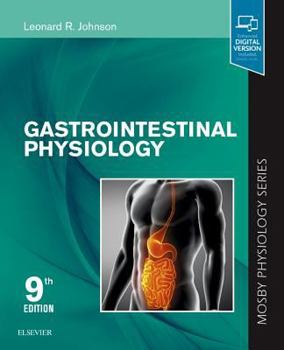Gastrointestinal Physiology: Mosby Physiology Series
Select Format
Select Condition 
Book Overview
Gain a foundational understanding of gastrointestinal physiology and how the GI system functions in health and disease. Gastrointestinal Physiology, a volume in the Mosby Physiology Series, explains the fundamentals of this complex subject in a clear and concise manner, while helping you bridge the gap between normal function and disease with pathophysiology content throughout the book.
Helps you easily master the material in a systems-based curriculum with learning objectives, Clinical Concept boxes, highlighted key words and concepts, chapter summaries, self-study questions, and a comprehensive exam. Keeps you current with recent advances in gastrointestinal physiology with coverage of the physiological significance of gastrointestinal peptides; the regulation of mucosal growth and cancer; details surrounding acid secretion and peptic ulcers; and more. Includes clear, 2-color diagrams that simplify complex concepts. Features clinical commentaries that show you how to apply what you've learned to real-life clinical situations. Covers the regulation of pancreatic secretion and gallbladder contraction; the transport processes for the absorption of nutrients; facts about fat absorption; and the regulation of food intake. Enhanced eBook version included with purchase. Your enhanced eBook allows you to access all of the text, figures, and references from the book on a variety of devices.Complete the Mosby Physiology Series Systems-based and portable, these titles are ideal for integrated programs.
Blaustein, Kao, & Matteson: Cellular Physiology and Neurophysiology Cloutier: Respiratory Physiology Koeppen & Stanton: Renal Physiology Pappano & Weir: Cardiovascular Physiology White, Harrison, & Mehlmann: Endocrine and Reproductive Physiology Hudnall: Hematology: A Pathophysiologic Approach





